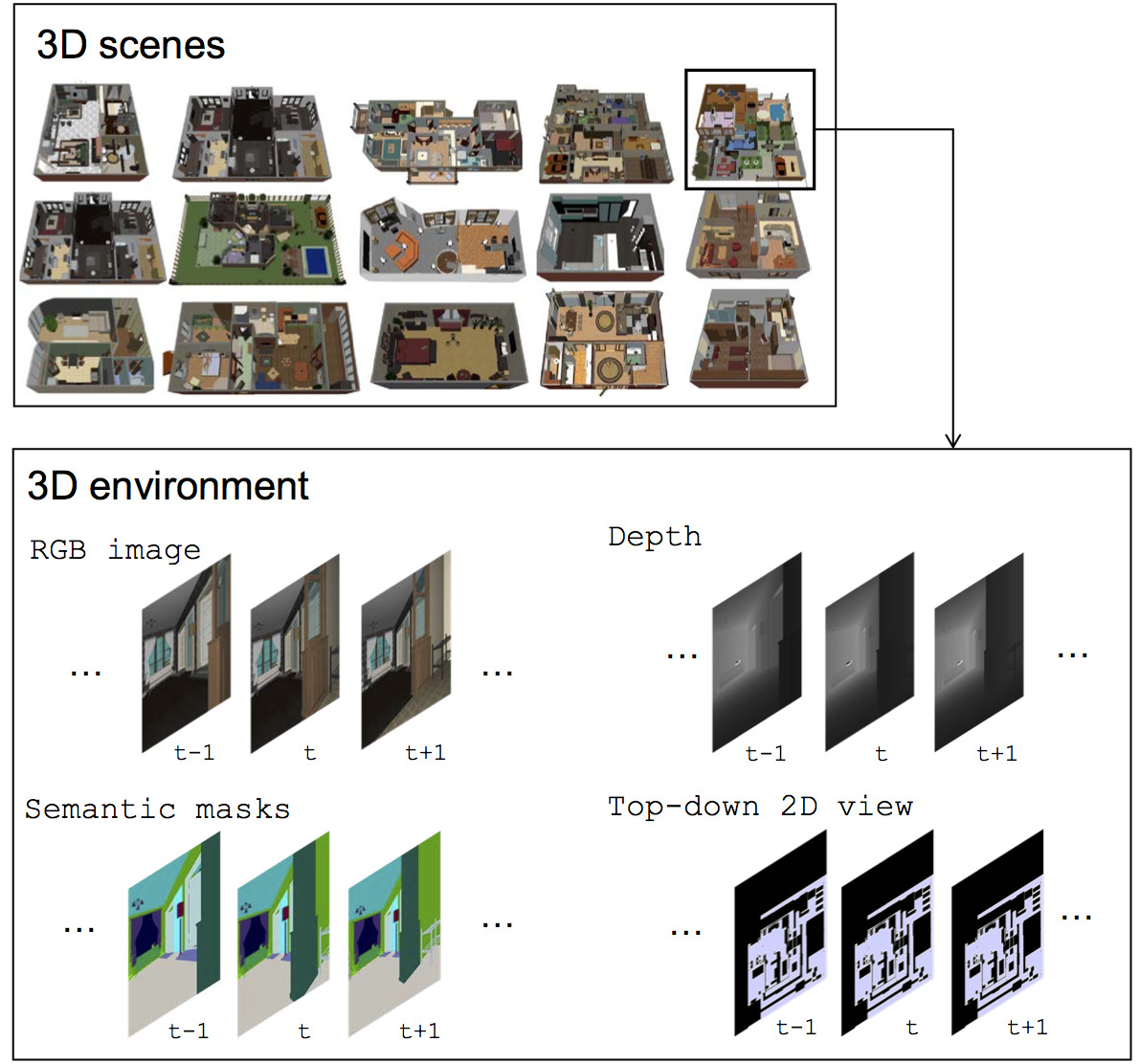Neural Modular Control for Embodied Question Answering
We present a modular approach for learning policies for navigation over long planning horizons from language input. Our hierarchical policy operates at multiple timescales, where the higher-level master policy proposes subgoals to be executed by specialized sub-policies. Our choice of subgoals is compositional and semantic, i.e. they can be sequentially combined in arbitrary orderings, and assume human-interpretable descriptions (e.g. 'exit room', 'find kitchen', 'find refrigerator', etc.). We use imitation learning to warm-start policies at each level of the hierarchy, dramatically increasing sample efficiency, followed by reinforcement learning. Independent reinforcement learning at each level of hierarchy enables sub-policies to adapt to consequences of their actions and recover from errors. Subsequent joint hierarchical training enables the master policy to adapt to the sub-policies. On the challenging EQA (Das et al., 2018) benchmark in House3D (Wu et al., 2018), requiring navigating diverse realistic indoor environments, our approach outperforms prior work by a significant margin, both in terms of navigation and question answering.
PDF Abstract


 EQA
EQA